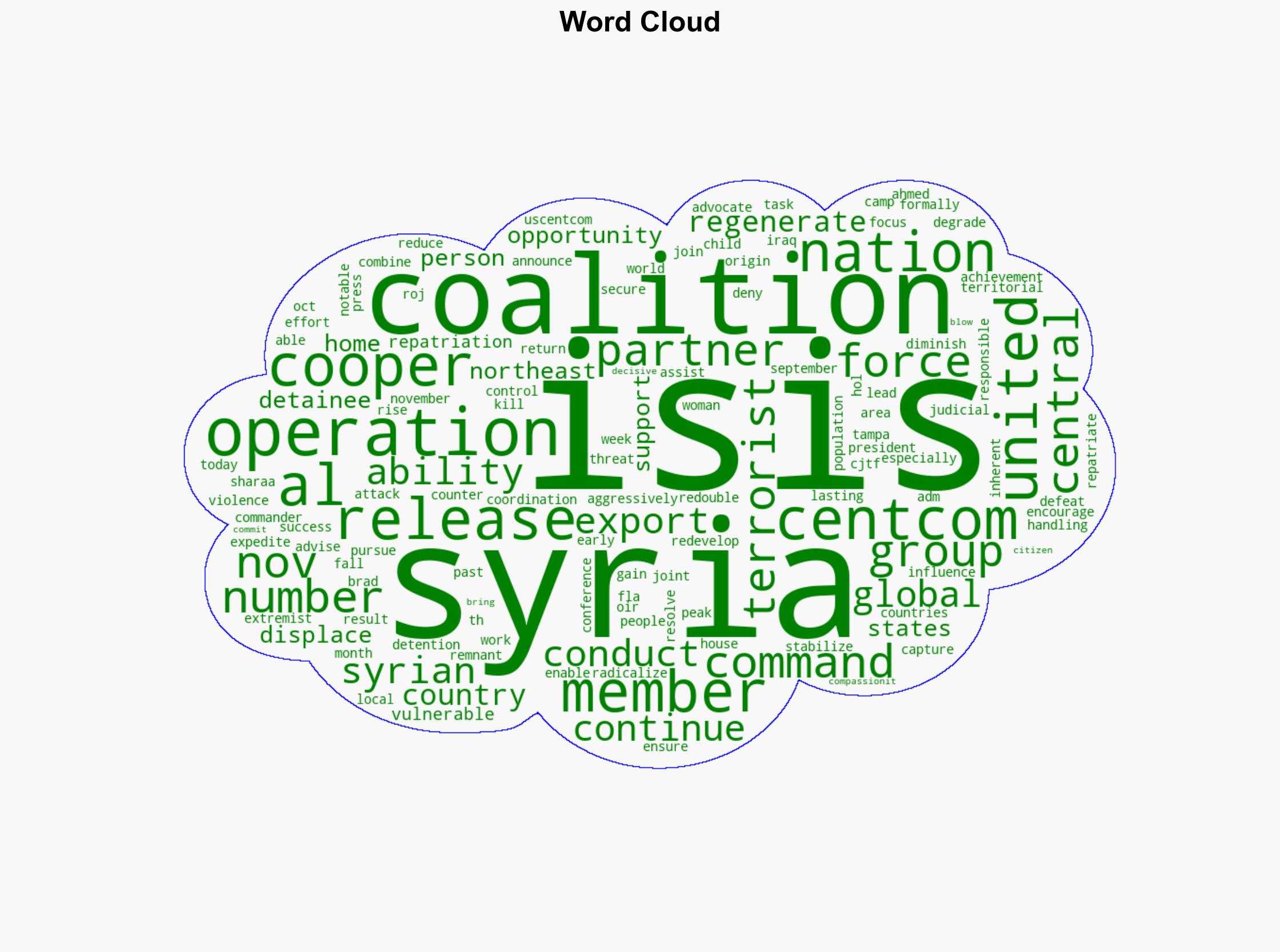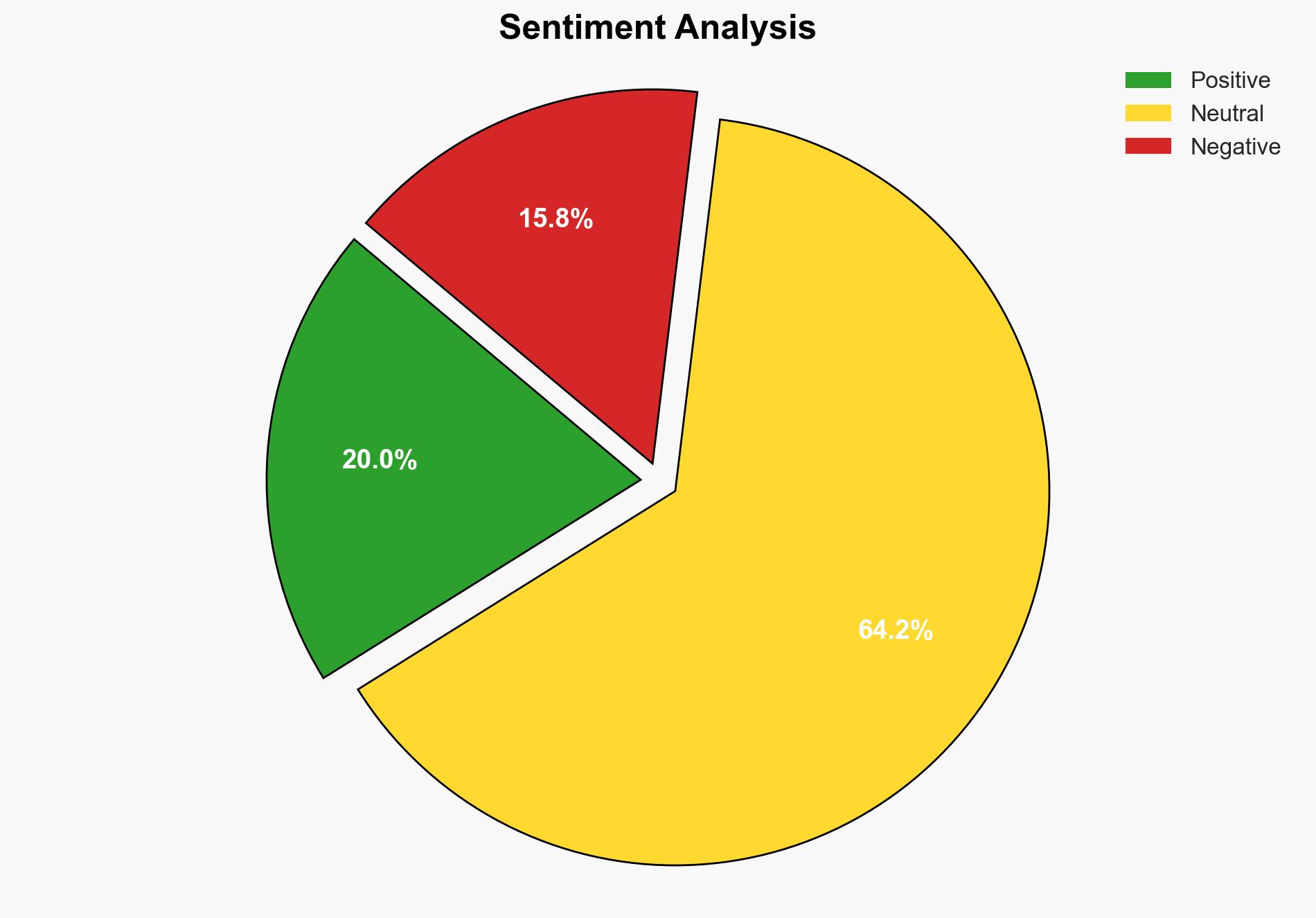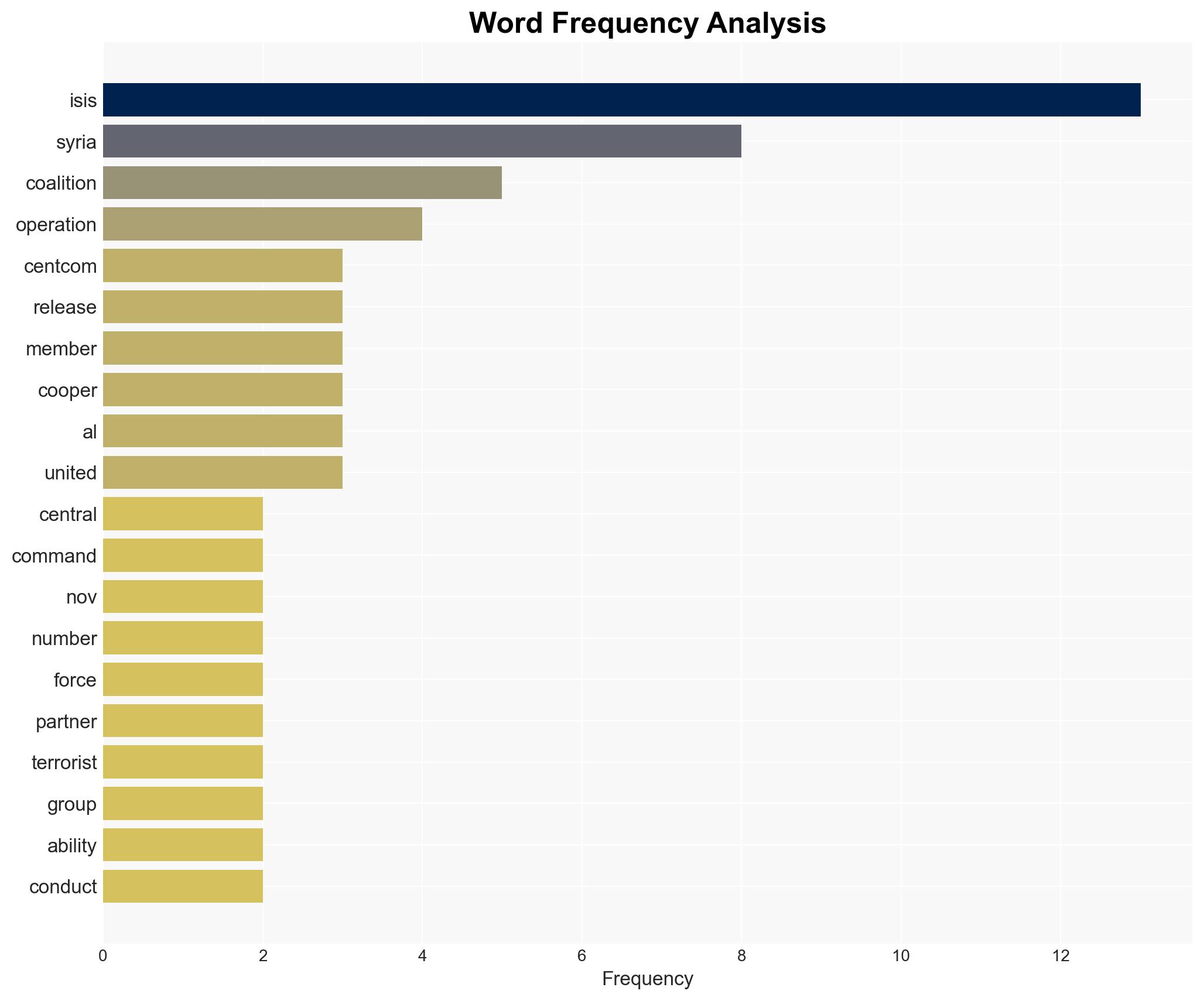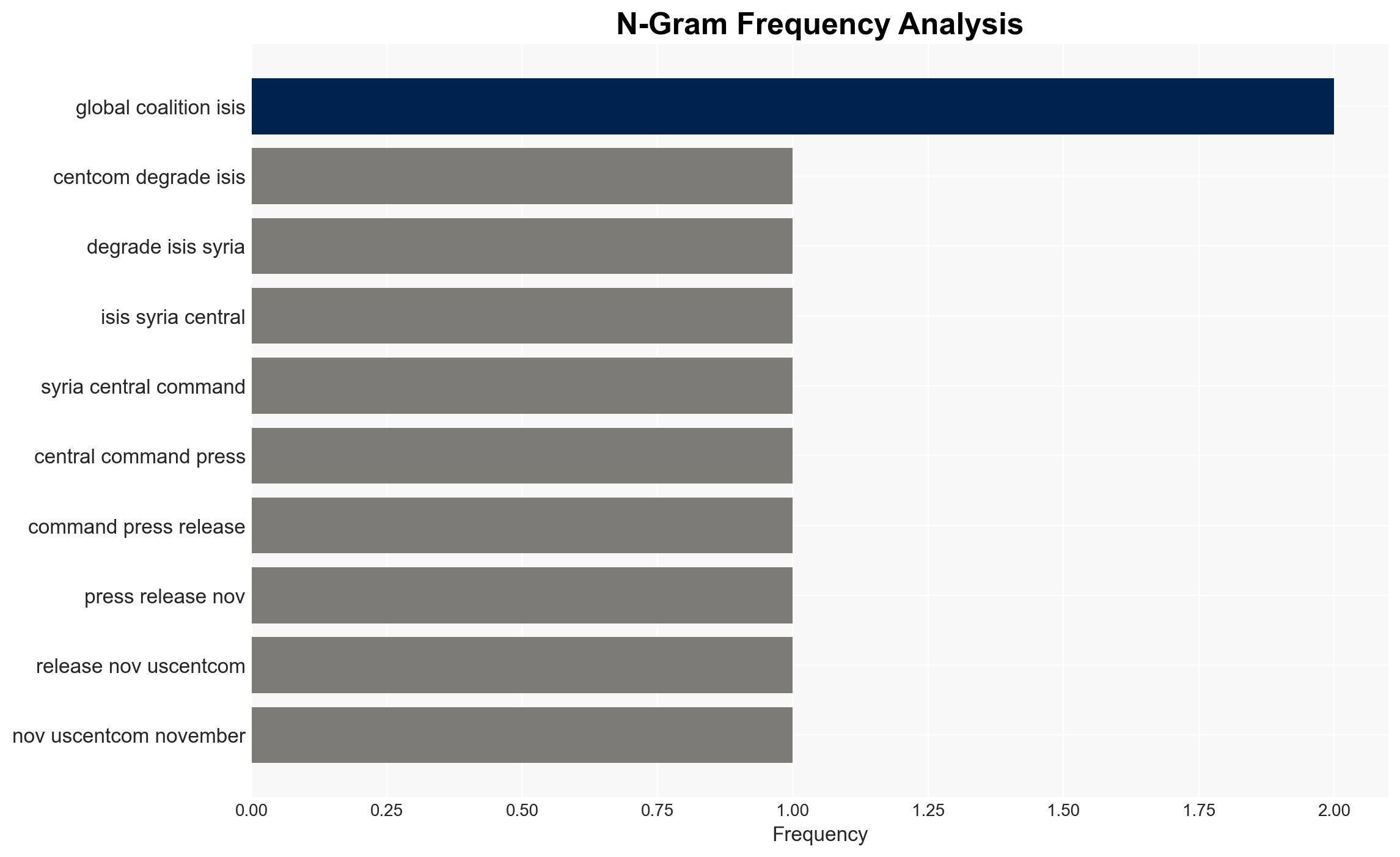CENTCOM Degrades ISIS in Syria – Globalsecurity.org
Published on: 2025-11-13
AI-powered OSINT brief from verified open sources. Automated NLP signal extraction with human verification. See our Methodology and Why WorldWideWatchers.
Intelligence Report: CENTCOM Degrades ISIS in Syria – Globalsecurity.org
1. BLUF (Bottom Line Up Front)
The most supported hypothesis is that CENTCOM’s operations have significantly weakened ISIS’s operational capabilities in Syria, but the group’s potential for resurgence remains if not continuously countered. Confidence Level: Moderate. Recommended action includes sustained military pressure and enhanced international cooperation for stabilization and repatriation efforts.
2. Competing Hypotheses
Hypothesis 1: CENTCOM’s operations have effectively degraded ISIS’s capabilities in Syria, leading to a long-term reduction in their ability to conduct operations locally and globally.
Hypothesis 2: Despite recent successes, ISIS retains the ability to regroup and exploit regional instability, posing a persistent threat.
Assessment: Hypothesis 1 is more supported given the reported success in degrading ISIS’s capabilities and the involvement of international coalitions. However, the resilience of ISIS and regional instability lend some credence to Hypothesis 2.
3. Key Assumptions and Red Flags
Assumptions: The effectiveness of CENTCOM’s operations relies on accurate intelligence and sustained international cooperation. The stability of the region is assumed to improve with continued coalition efforts.
Red Flags: Potential for ISIS to exploit political instability or gaps in coalition efforts. Over-reliance on military solutions without addressing underlying socio-economic issues.
Deception Indicators: Possible exaggeration of success metrics or underreporting of ISIS’s adaptive capabilities.
4. Implications and Strategic Risks
The degradation of ISIS in Syria reduces immediate threats but may lead to dispersed cells increasing operations elsewhere. Political instability in Syria could undermine efforts, while inadequate handling of detainees and displaced persons could fuel radicalization. Cyber threats and propaganda efforts by ISIS may escalate as physical operations are constrained.
5. Recommendations and Outlook
- Maintain military pressure on ISIS while enhancing intelligence-sharing among coalition partners.
- Support socio-economic stabilization programs in liberated areas to prevent ISIS resurgence.
- Facilitate the repatriation and judicial handling of detainees to reduce radicalization risks.
- Best-case scenario: Continued degradation of ISIS leads to regional stabilization and reduced global threat.
- Worst-case scenario: ISIS exploits regional instability and resurges, increasing global terrorist activities.
- Most-likely scenario: ISIS remains a diminished but persistent threat, requiring ongoing international vigilance and cooperation.
6. Key Individuals and Entities
Admiral Brad Cooper – CENTCOM Commander
Syrian President Ahmed al-Sharaa
7. Thematic Tags
Regional Focus: Middle East, Counterterrorism, International Cooperation, Military Operations
Structured Analytic Techniques Applied
- Causal Layered Analysis (CLA): Analyze events across surface happenings, systems, worldviews, and myths.
- Cross-Impact Simulation: Model ripple effects across neighboring states, conflicts, or economic dependencies.
- Scenario Generation: Explore divergent futures under varying assumptions to identify plausible paths.
- Narrative Pattern Analysis: Deconstruct and track propaganda or influence narratives.
Explore more:
Regional Focus Briefs ·
Daily Summary ·
Methodology





